-
 Bitcoin
Bitcoin $117,576.6195
-0.21% -
 Ethereum
Ethereum $2,938.5668
-1.35% -
 XRP
XRP $2.7699
4.60% -
 Tether USDt
Tether USDt $1.0003
0.01% -
 BNB
BNB $688.1624
-0.01% -
 Solana
Solana $160.5113
-1.95% -
 USDC
USDC $0.9999
0.01% -
 Dogecoin
Dogecoin $0.1976
-0.70% -
 TRON
TRON $0.3008
1.54% -
 Cardano
Cardano $0.7159
-2.16% -
 Hyperliquid
Hyperliquid $46.2240
2.04% -
 Stellar
Stellar $0.3966
22.03% -
 Sui
Sui $3.3928
-3.11% -
 Chainlink
Chainlink $15.1204
-2.43% -
 Bitcoin Cash
Bitcoin Cash $515.1741
-1.19% -
 Avalanche
Avalanche $20.8130
-0.90% -
 Hedera
Hedera $0.2001
-2.12% -
 UNUS SED LEO
UNUS SED LEO $9.0522
0.72% -
 Shiba Inu
Shiba Inu $0.0...01316
-2.01% -
 Toncoin
Toncoin $2.9843
0.61% -
 Litecoin
Litecoin $92.6745
-2.71% -
 Polkadot
Polkadot $3.9483
-0.06% -
 Monero
Monero $328.5347
1.10% -
 Dai
Dai $0.9998
0.01% -
 Ethena USDe
Ethena USDe $1.0006
-0.01% -
 Uniswap
Uniswap $8.3739
-6.50% -
 Bitget Token
Bitget Token $4.4241
-1.99% -
 Pepe
Pepe $0.0...01222
-3.96% -
 Aave
Aave $300.5203
-3.61% -
 Bittensor
Bittensor $382.2607
-1.92%
What are account abstraction wallets
Account abstraction wallets enhance Ethereum user experience by enabling smart contract-based accounts with customizable transaction logic, sponsored gas, and improved recovery options.
Jul 13, 2025 at 01:43 am
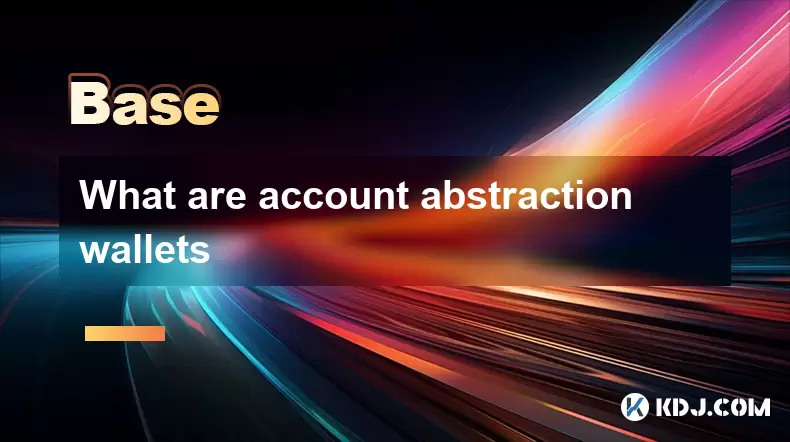
Understanding the Concept of Account Abstraction
Account abstraction is a term frequently used in the Ethereum ecosystem, particularly within discussions about wallet design and transaction handling. At its core, account abstraction refers to the process of removing the distinction between externally owned accounts (EOAs) and contract accounts on the blockchain. Traditionally, EOAs are controlled by private keys, while contract accounts execute code when triggered by transactions.
With account abstraction wallets, users can create smart contracts that act as their primary wallet, allowing for more flexible and programmable interactions with the Ethereum network. This means that instead of relying solely on private keys for transaction signing, users can implement custom logic directly into their wallet's behavior.
How Do Account Abstraction Wallets Work?
In standard Ethereum architecture, a wallet like MetaMask uses an EOA model where each transaction must be signed using a private key. In contrast, account abstraction wallets operate as smart contract wallets, enabling developers to define custom rules for transaction validation and execution.
These wallets allow features such as:
- Sponsored transactions, where third parties can pay gas fees on behalf of users.
- Multi-signature requirements without needing external services.
- Biometric or social login integrations for enhanced user experience.
The entry point contract serves as a central coordinator for all user operations. When a user initiates a transaction, it is submitted to this entry point, which validates and executes it accordingly. This mechanism eliminates the need for every wallet to independently handle signature verification and nonce management.
Key Features of Account Abstraction Wallets
One of the most notable aspects of account abstraction wallets is their ability to support custom transaction logic. Unlike traditional wallets, these wallets can be programmed to enforce specific conditions before approving a transaction.
Some prominent features include:
- Batched Transactions: Users can bundle multiple actions into a single transaction, reducing overall gas costs.
- Recovery Mechanisms: Custom recovery procedures can be built into the wallet, offering alternatives to seed phrase-based recovery.
- Delegation Capabilities: Wallets can delegate permissions to other entities or applications temporarily.
This flexibility significantly enhances user autonomy and security, especially for decentralized application (dApp) users who interact frequently with various protocols.
Implementation Steps for Developers
Developers looking to implement account abstraction wallets must follow several steps to ensure compatibility and functionality within the Ethereum network.
- Deploy EntryPoint Contract: The first step involves deploying the EntryPoint contract, which acts as the main handler for all user operations.
- Create Smart Wallet Contracts: Developers must write and deploy the actual wallet contracts that will represent user accounts.
- Implement UserOperation Struct: Define the structure of a UserOperation, which includes fields like sender, nonce, initCode, callData, and signature.
- Integrate Paymaster Logic (Optional): For dApps wishing to sponsor transactions, integrating a paymaster contract allows them to cover gas fees.
- Frontend Integration: Wallet interfaces must be updated to support sending UserOperations rather than standard Ethereum transactions.
Each of these steps requires careful attention to Solidity best practices and thorough testing to avoid vulnerabilities such as reentrancy attacks or incorrect signature validation.
Use Cases and Real-World Applications
The adoption of account abstraction wallets opens up numerous possibilities across the crypto space, especially for improving user experience and reducing friction.
Examples include:
- Gaming Platforms: Players can have seamless transactions without managing gas fees themselves.
- Decentralized Identity Solutions: Users can control identity verification through programmable wallet logic.
- Subscription Services: dApps can implement recurring payments through automated wallet logic.
- DAO Participation: Voters can delegate their voting power or set conditional approvals based on governance proposals.
By abstracting the account layer, developers can build more intuitive and secure financial tools tailored to diverse use cases without compromising decentralization.
Frequently Asked Questions (FAQ)
Q1: Can I convert my existing wallet into an account abstraction wallet?
Yes, but it involves migrating your funds to a new smart contract wallet. You’ll need to carefully transfer assets and verify compatibility with dApps you use regularly.
Q2: Are account abstraction wallets supported on all blockchains?
Currently, they are primarily implemented on Ethereum and EVM-compatible chains. Non-EVM blockchains may require different approaches due to variations in consensus and contract execution models.
Q3: How do I recover access if I lose my credentials?
Unlike traditional wallets that rely on seed phrases, account abstraction wallets allow developers to embed custom recovery mechanisms. These could include social recovery, multi-sig guardians, or time-lock fallbacks.
Q4: Is there a risk of higher gas fees with account abstraction wallets?
Initial deployment might incur slightly higher gas costs due to contract creation. However, batched transactions and sponsored gas models often offset these expenses over time.
Disclaimer:info@kdj.com
The information provided is not trading advice. kdj.com does not assume any responsibility for any investments made based on the information provided in this article. Cryptocurrencies are highly volatile and it is highly recommended that you invest with caution after thorough research!
If you believe that the content used on this website infringes your copyright, please contact us immediately (info@kdj.com) and we will delete it promptly.
- Ripple's RLUSD Finds a Home: Swiss Bank AMINA Integrates the Stablecoin
- 2025-07-13 06:30:11
- Worldcoin Price Prediction: Navigating the Invalidation Zone
- 2025-07-13 06:30:11
- Ethereum Price Prediction: Will ETH Reach 100% Gains?
- 2025-07-13 04:50:12
- Ruvi AI: The Smart Choice Over Avalanche? Plus, It's Audited!
- 2025-07-13 04:50:12
- Onyxcoin (XCN): Ready to Outperform in This Crypto Cycle?
- 2025-07-13 04:30:12
- GameFi, Regulated, Asia: A New Era of Web3 Gaming?
- 2025-07-13 04:30:12
Related knowledge
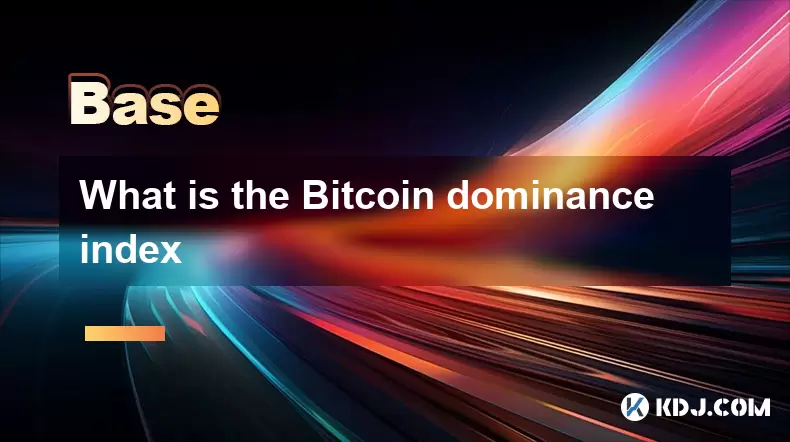
What is the Bitcoin dominance index
Jul 12,2025 at 10:35pm
Understanding the Bitcoin Dominance IndexThe Bitcoin Dominance Index, often abbreviated as BTC.D, is a metric used to measure Bitcoin's market capital...
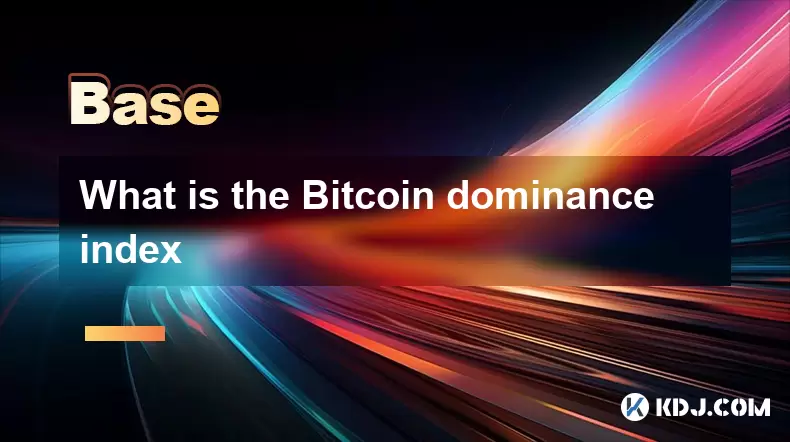
What is the Bitcoin dominance index
Jul 11,2025 at 04:29am
What is the Bitcoin Dominance Index?The Bitcoin Dominance Index is a metric used to gauge Bitcoin's market capitalization relative to the total market...
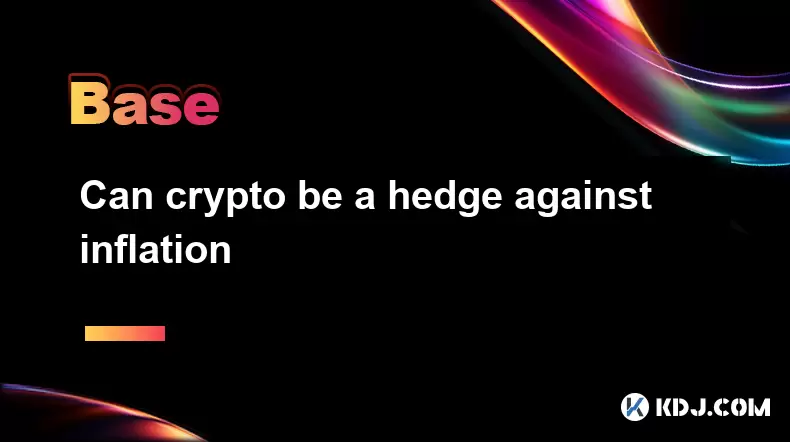
Can crypto be a hedge against inflation
Jul 12,2025 at 12:07pm
Understanding the Role of Blockchain in Decentralized Finance (DeFi)Blockchain technology serves as the backbone of decentralized finance, offering a ...

What are account abstraction wallets
Jul 13,2025 at 01:43am
Understanding the Concept of Account AbstractionAccount abstraction is a term frequently used in the Ethereum ecosystem, particularly within discussio...
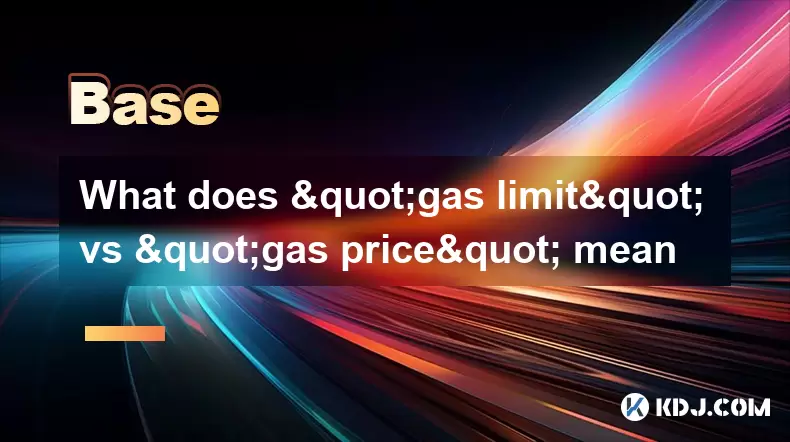
What does "gas limit" vs "gas price" mean
Jul 13,2025 at 04:00am
Understanding the Basics of Gas in Blockchain TransactionsIn the Ethereum and other EVM-compatible blockchains, every transaction requires computation...
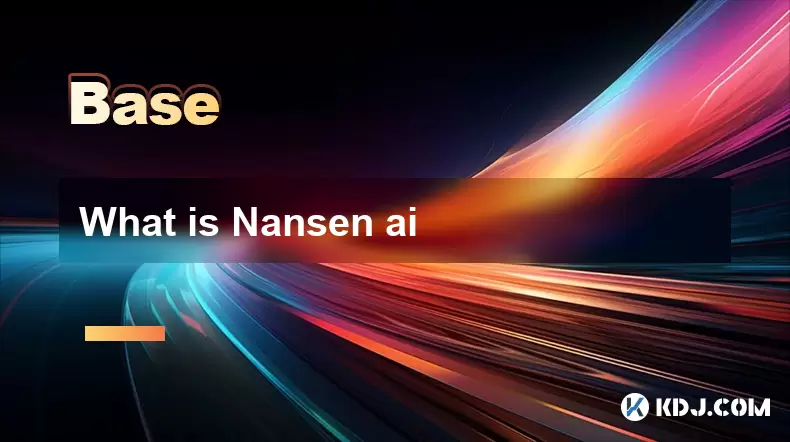
What is Nansen ai
Jul 11,2025 at 03:42am
What is Nansen AI?Nansen AI refers to the integration of artificial intelligence technologies into the Nansen platform, which is primarily known for i...

What is the Bitcoin dominance index
Jul 12,2025 at 10:35pm
Understanding the Bitcoin Dominance IndexThe Bitcoin Dominance Index, often abbreviated as BTC.D, is a metric used to measure Bitcoin's market capital...

What is the Bitcoin dominance index
Jul 11,2025 at 04:29am
What is the Bitcoin Dominance Index?The Bitcoin Dominance Index is a metric used to gauge Bitcoin's market capitalization relative to the total market...

Can crypto be a hedge against inflation
Jul 12,2025 at 12:07pm
Understanding the Role of Blockchain in Decentralized Finance (DeFi)Blockchain technology serves as the backbone of decentralized finance, offering a ...

What are account abstraction wallets
Jul 13,2025 at 01:43am
Understanding the Concept of Account AbstractionAccount abstraction is a term frequently used in the Ethereum ecosystem, particularly within discussio...

What does "gas limit" vs "gas price" mean
Jul 13,2025 at 04:00am
Understanding the Basics of Gas in Blockchain TransactionsIn the Ethereum and other EVM-compatible blockchains, every transaction requires computation...

What is Nansen ai
Jul 11,2025 at 03:42am
What is Nansen AI?Nansen AI refers to the integration of artificial intelligence technologies into the Nansen platform, which is primarily known for i...
See all articles

























































































